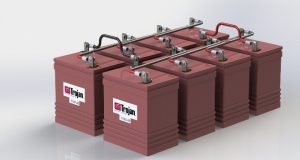
BlogEcolateral Thinking
What makes ECOLATERAL different
Moving the Goal Posts on Residential Energy Generation and Storage
The Dream
More and more grid energy customers dream of being able to take responsibility for their own on-site power generation and storage.  While we can rarely get away from the ever-increasing network charges we can substantially reduce our bills by reducing or eliminating the amount of grid supplied energy we use.
While we can rarely get away from the ever-increasing network charges we can substantially reduce our bills by reducing or eliminating the amount of grid supplied energy we use.
The last 4-5 years has seen an unprecedented development in battery storage. Following the solar panel model, battery storage is becoming smaller, more powerful and more affordable. So much so that the dream of having an affordable solar panel/ battery configuration that will cater for daily household use and feed a battery bank for night time consumption, is close to becoming a reality.
Changes to Australian Standard AS 4777.1
AS 4777.1 is an Australian standard developed several years ago to cater for inverter safety, amongst other things. The standard has been recently updated to include a control on Solar Panel/Battery configuration sizes. Effective immediately, at the discretion of the energy network provider, a cap can be applied to the combined kW capacity of the solar panels and the batteries for a standard single phase domestic residence.
What does this mean to the average house
Let us say you have an existing 5kW solar system on your home and you want to add 4kW’s of AC batteries. The updated standard defines the new system size as 9 kW (5kW Panels plus 4kW batteries). This takes the system beyond the 5kW default capacity for single phase residences (the average home).
There are two options available to the home owner if this new system is to proceed.
Option one:
Application is made to the energy network provider to allow the upgrade of the system to take place retaining the single-phase supply.
Option two:
Upgrade the home to a three-phase power supply which could add thousands of dollars to the project.
While there are grounds for this control in some applications, it’s hard to think that any network providers stopping small systems such as this, are not also acting with a mind to maintaining their monopoly of the system. Road blocks are an effective deterrent. It will be interesting to see how this unpacks over time and what State networks will do. Queensland doesn’t have a great record in supporting such applications according to most industry experts.
John Moynihan
Ecolateral.












